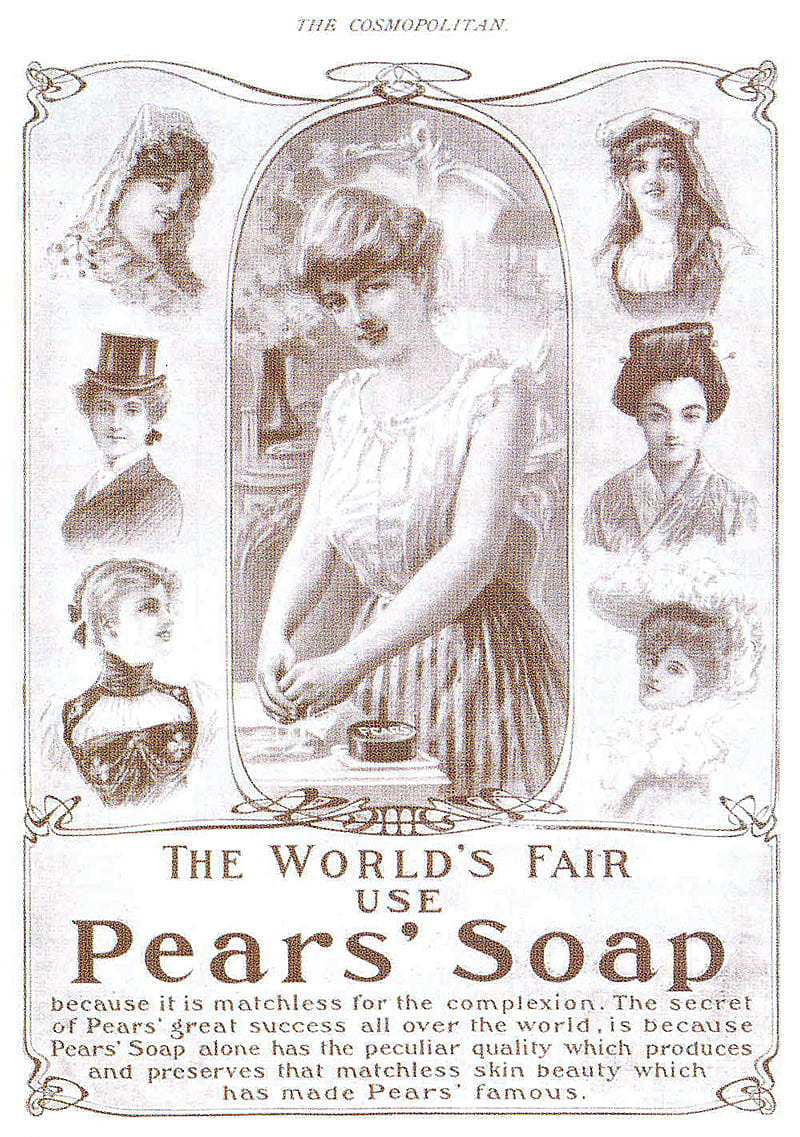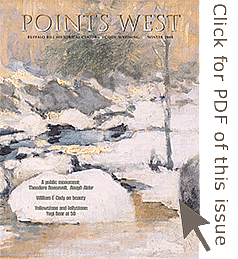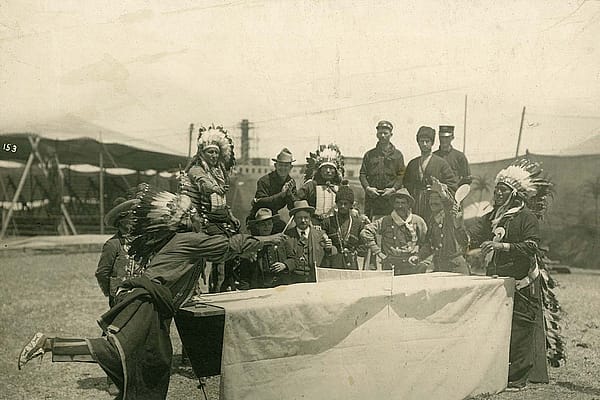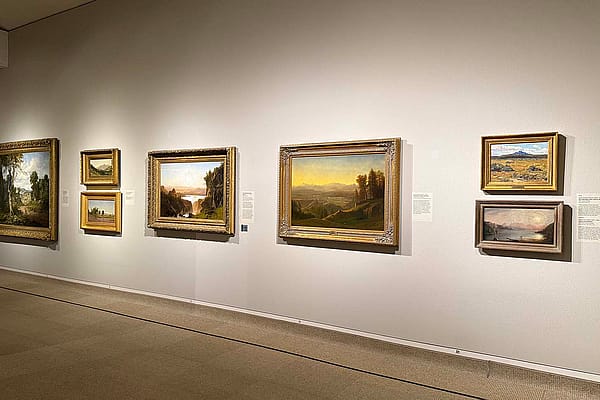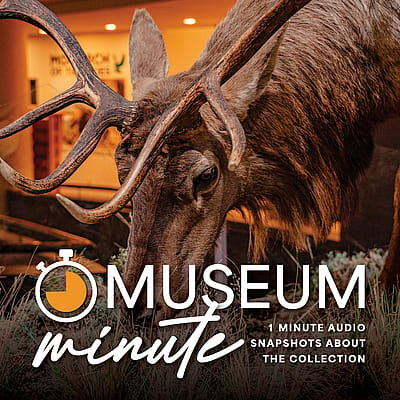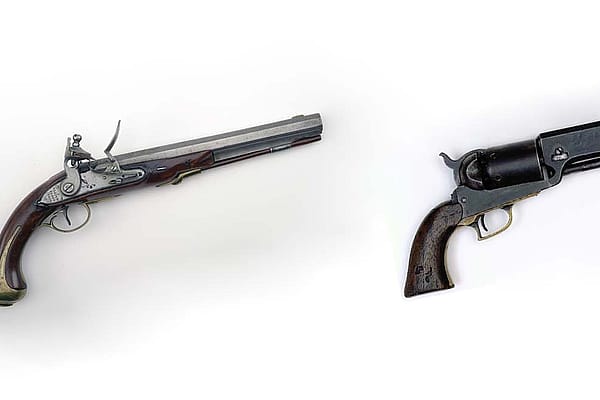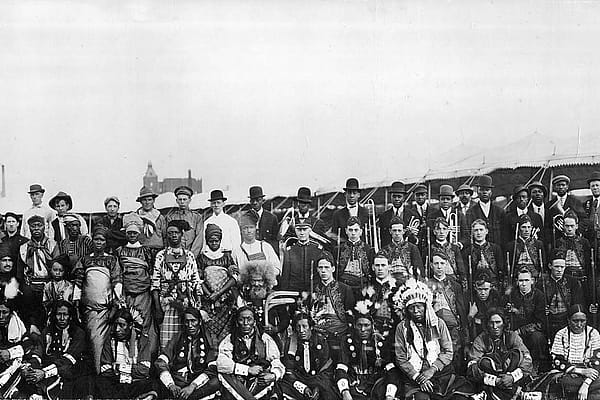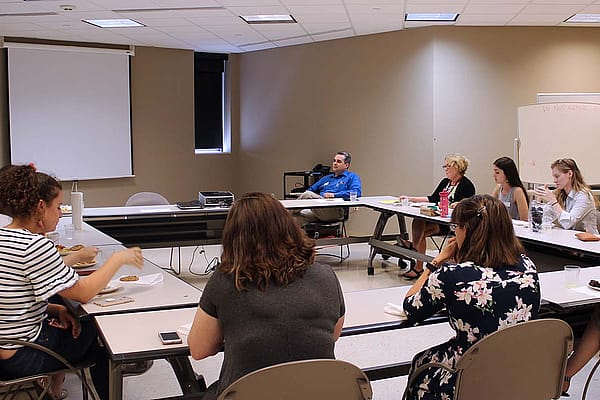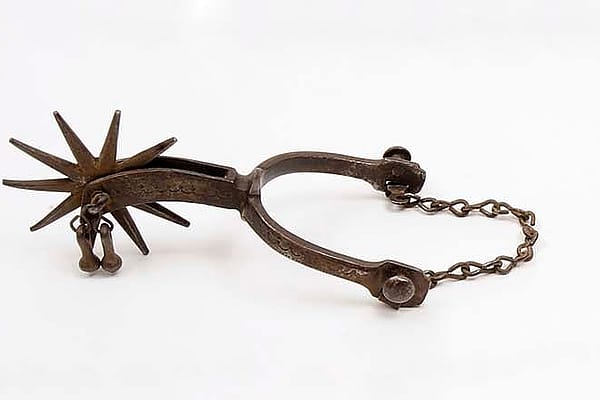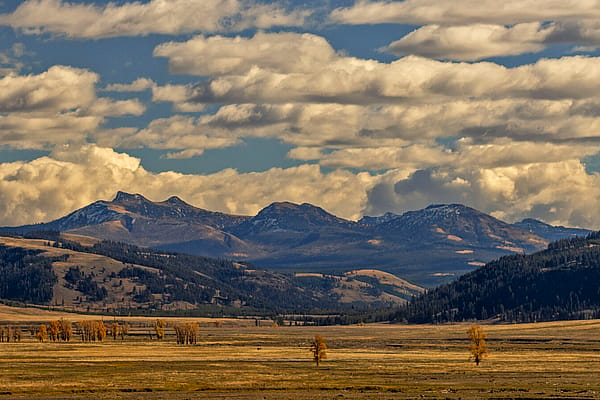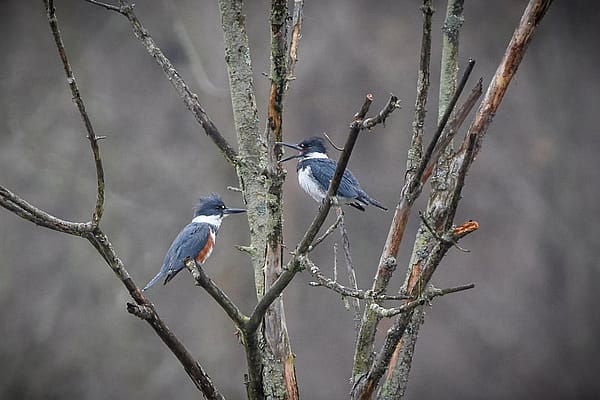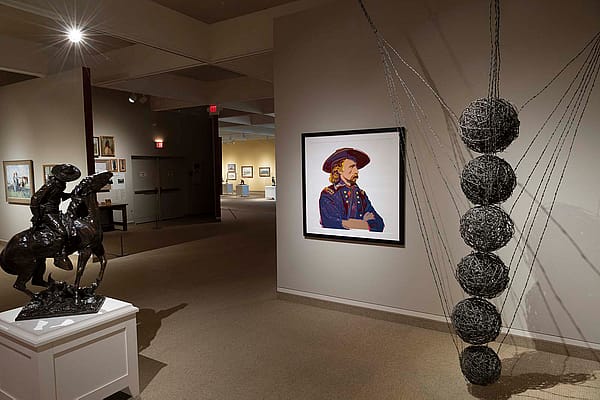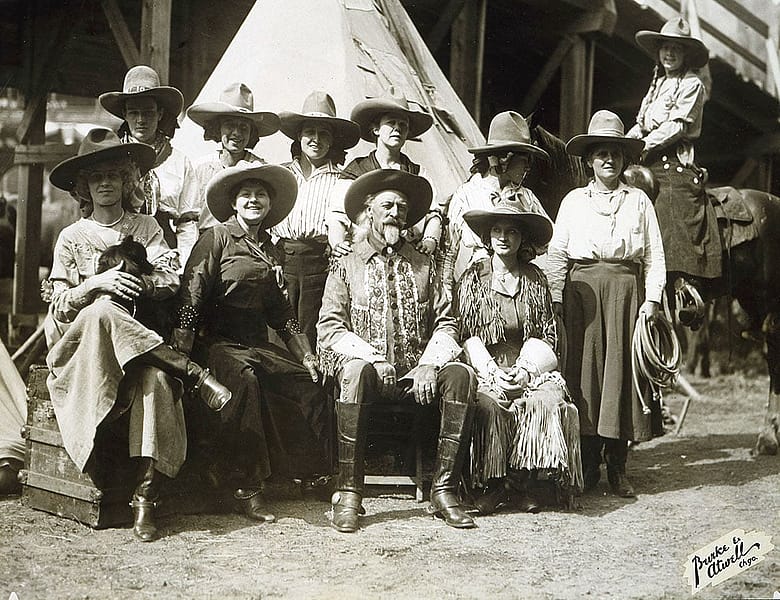
William F. Cody on Beauty – Points West Online
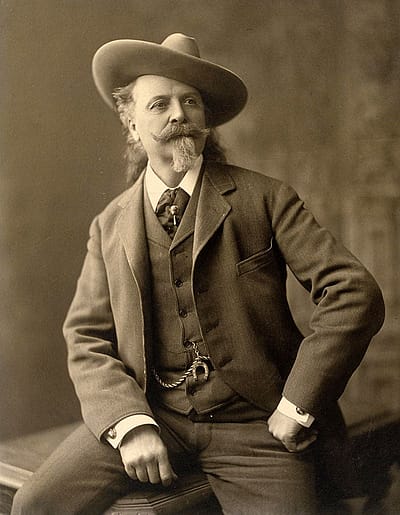
Originally published in Points West magazine
Winter 2008
William F. Cody on Beauty
An interview with Buffalo Bill by a female reporter of the Nebraska State Journal, May 11, 1901
When Col. William F. Cody, whose real name is Buffalo Bill, rides gallantly across the Garden arena, says the New York Sun, even the small boys peeking through the windows can see that he is a fine figure of a man. But not they, nor yet the little and the big aristocrats in the front boxes, can properly appreciate the colonel’s finer points.
These minor beauties consist of a man with an elegantly arched foot, a certain caressing way in which the colonel’s hair curls about his buckskin collar, and finally, a skin as soft and as smooth as a baby’s. Now the size of the colonel’s shoes is a matter between himself and his shoemakers; and the tender wave in the colonel’s hair, there is every reason to believe, is something he has neither begged nor borrowed, nor paid for at the barber’s. It is a touch of nature that couldn’t be rubbed out even if the colonel wanted to have it done. Not that he does.
But the baby skin of the old Indian fighter is different. For it is a curious fact that whereas all the people in the Wild West show were once equipped with baby complexions, the colonel is the only man of them that still retains one of that sort. A fashionable woman would pawn her diamonds to have skin like his.
And yet, the colonel is not set up by this preeminence. In fact, he seemed rather upset, rather than set up, when a feminine admirer asked him his recipe for the care of the complexion. A soft blush mantled the colonel’s delicate cheek, and he took a deep breath which made his powerful figure show up to better advantage than ever. Then, with the modesty of the true hero and the true beauty alike, he evidently suspected that he was being guyed.
“I haven’t shaved today,” he said apologetically, passing his hand over his cheek, where the blush above-mentioned had made itself delicately at home.
“Don’t you do anything to keep yourself in good physical condition? Don’t you have to fight fat? Do you never find yourself setting stooped? Above all, how do you manage that rose leaf skin?

“Why,” said the colonel, “Why—really—I’ve never been interviewed on anything of this sort. If you’d like to hear about the time we had four kings and a joker in the Deadwood coach…”
“Oh, of course, if it’s a secret!”
“What’s a secret?”
“What you do for your complexion.”
“I don’t do anything. Such as it is, I was born with it.”
“Exactly! So was I born with one like it. The questions is: How do you manage to hang on to it?”
“You want the story of my life?”
“In a nutshell. Better still, in a capsule, to be administered to women wanting to reform their complexions.”
“Well, it won’t have to be a large capsule. About three grains of wisdom is all I can give them. First, be born with pure blood; second, live an out-of-door life; third, don’t overeat.
“The first rule, of course, is one we can’t follow. That’s a matter of luck, and I was lucky. The other two points lie within the choice of almost every individual.
“I was fortunate in being brought up in the country. My early life on the plains gave me the physique which carries me now through an amount of work which would break down most men. Nebraska had a dry climate, and I slept at night under the sky and lived by day in the saddle until my lungs had grown and deepened and strengthen, so that all the years since then have not robbed me of what I gained then.
“It’s easy for me to eat little because I’m never hungry. When I used to go out on military expeditions in the old days, we were often put on half rations. When we were, I could always give half of my half ration to somebody else. And it was the same with water. I could go for twelve or fifteen hours without even feeling thirsty. And I’ve never drank much water, though I believe it is said to be good for the health.
“I sleep only about four hours a night, go to bed about midnight and lie awake about two hours going over my business affairs and planning the work for the next day. Then I sleep until six o’clock, when I get up. I have an orange, a little oatmeal, a bit of sirloin steak, and a couple of boiled eggs for breakfast, and then I’m loaded for work.
“Of course, I think the American women are the finest in the world, but they could learn a good deal from English women. Take the English woman’s complexion, which is acknowledged to be better than the American woman’s. It comes from her out-of-door life. I’ve seen women of all nations, but next to the Americans, I like the English best. They’re more of my sort. They love horses, and I like anybody that does that.
“My! But those English women can ride! And they are sensible enough to ride in the only way a woman should, and this is astride. You mark my words, ten years from now there won’t be one side-saddle in a thousand. What sort of way is that to ride a horse? Skewed around like this,” hanging his legs over the arm of a chair. “I used to think that, a woman in one of those long habits, riding in the old-fashioned way, was the prettiest sight in the world. I still think she is pretty fine, but she is nothing to a woman riding astride.
“When a woman has learned to ride that way she is as far ahead of a man riding as a swallow’s flight beats a duck’s. It’s beautiful to see her.
“The English women are beginning to ride to hounds that way, and they make it the fashion. They’re good sport in every way: brave, sensible, strong, good comrades, and fair opponents.”
“You seem to waver in your allegiance to the American women.”
“Well, I am just a bit gone on the English women.”
“How about the French?”
“Oh, they’re too much like a plumb firecracker. They go off all of a sudden, with a lot of fuse and flurry, and that’s all there is to them. Fiz-ziz-bang!—and it’s all over. Give me the English women. I wish our American girls would follow their example in some respects. If they did they’d not take such an absorbing interest in what shall be done to save a complexion. The complexion would take care of itself!”
This interview with William F. “Buffalo Bill” Cody was discovered through the Buffalo Bill Center of the West’s Papers of William F. Cody project, an effort to locate, edit, and publish documentation on the life and times of William F. “Buffalo Bill” Cody. The undertaking represents the nation’s first major project to focus on a leading icon of American popular culture.
Post 219
Written By
Nancy McClure
Nancy now does Grants & Foundations Relations for the Center of the West's Development Department, but was formerly the Content Producer for the Center's Public Relations Department, where her work included writing and updating website content, publicizing events, copy editing, working with images, and producing the e-newsletter Western Wire. Her current job is seeking and applying for funding from government grants and private foundations. In her spare time, Nancy enjoys photography, reading, flower gardening, and playing the flute.
